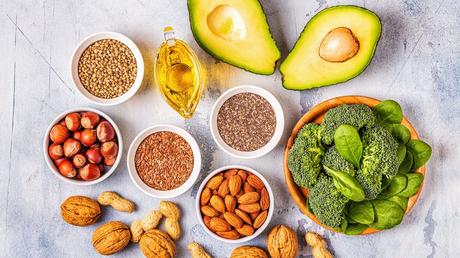Eating a low-carb diet has been shown to improve weight loss, blood sugar control, and insulin sensitivity, among other benefits.
However, the effect low-carb diets may have on low-density lipoprotein (LDL) cholesterol remains a significant concern for many clinicians, preventing some of them from recommending these potentially beneficial diets.
Scientific studies support that low-carb and ketogenic diets do not significantly increase LDL cholesterol for the average person with type 2 diabetes or obesity. Instead, people following low-carb diets usually see an increase in high-density lipoprotein (HDL) cholesterol with a decrease in triglycerides, triglyceride-rich remnant cholesterol, and small LDL particles. One study even demonstrated an overall reduction of LDL particles.
However, these results represent an average of study participants. Some individuals may see a dramatic rise in their LDL by over 50% and be considered an LDL hyper-responder.
Specific populations, like lean athletes, may be even more likely to develop elevated LDL levels.

Get your personalized meal plan with a FREE 30-day trial!
What is an LDL hyper-responder?
Understanding the risks posed to low-carb LDL hyper-responders is tricky, as these individuals fall into an emerging area of study where little clear evidence exists. However, Dave Feldman, an engineer and popular low-carb "citizen-scientist," has partnered with a prominent physician-researcher to start a scientific study on the subject. They have proposed a definition for enrollment in the study for a specific subset of hyper-responders termed "lean mass hyper-responders" as having the following:
- An increase of 50% or more in LDL cholesterol to at least 190 mg/dL (5 mmol/L) since adopting a low-carb diet
- HDL cholesterol at 60 mg/dL (1.5 mmol/L) or above
- Triglycerides at 80 mg/dL (0.9 mmol/L) or below
For practical purposes, we prefer a simpler definition for all low-carb hyper-responders that focuses exclusively on LDL:
- An increase of 50% or more in LDL cholesterol, to a level considered elevated by a clinical provider, since adopting a low-carb diet
Other cardiovascular risk markers such as HDL, triglycerides, insulin resistance calculations, blood pressure, lipoprotein(a), and coronary calcium scores may further clarify the potential risk imparted by elevated LDL and should likely be evaluated.
When considering whether you are a low-carb LDL hyper-responder, it's also important to confirm that you don't have familial hypercholesterolemia (FH). Familial hypercholesterolemia is a genetic condition in which LDL receptors aren't able to clear LDL from the circulation. This condition results in markedly elevated LDL levels from birth and likely carries a different prognosis than isolated high LDL after a dietary change.
Why does LDL go up on a low-carb diet?
Since the inquiry into the cardiovascular health of LDL hyper-responders is relatively new, no mechanistic studies prove why LDL increases in low-carb hyper-responders. But several theories exist:
- Energy delivery model
Engineer and "citizen-scientist" Dave Feldman from cholesterolcode.com first popularized the energy delivery model. This model states that people eating a low-carb diet depend on triglycerides (fat) more than glucose for energy. Therefore, the liver produces more triglyceride-rich, very low-density lipoprotein (VLDL) particles. These particles go into circulation and deliver the triglycerides to tissues - such as muscles - that need them for energy.
When a VLDL particle releases triglycerides, it eventually transforms into an LDL particle. Therefore, this hypothesis suggests the increased LDL is the downstream result of an individual requiring more energy delivery from triglycerides.
We don't know which of these hypotheses, if any, is correct. They may all play a role, or there may be a completely different explanation for why LDL increases in some people - but not others - upon starting a low-carb diet.
Regardless of the mechanism, the keys are evaluating whether or not the increased LDL creates a net harm for the individual, and if so, if there are ways to safely and effectively lower the value.
Is elevated LDL harmful for low-carb hyper-responders?
Multiple lines of scientific evidence report that higher LDL levels are associated with higher rates of heart disease in the general population. In addition, lower LDL levels - either through inborn genetic mutations or treatment with statins - correlate with a lower risk of heart disease.
However, the magnitude of risk posed by elevated LDL in the general population is often lower than many people expect. You can read more about the specifics in our guide, Is LDL cholesterol harmful?
Most influential medical societies believe the balance of evidence is sufficiently strong to support the stance that elevated LDL increases the risk of cardiovascular disease, and that lowering LDL is beneficial.
The main unanswered question is whether increased LDL in low-carb hyper-responders has a more benign prognosis than the same elevation in those eating a standard diet.
To answer that, we need to look at other situations where LDL has been shown to not correlate with increased cardiovascular risk.
For example, some research suggests that elevated LDL, in the presence of high HDL and low triglycerides, carries little or no increased cardiovascular risk. However, more research is needed to confirm these findings and determine if the very-high values of LDL seen in LDL hyper-responders confer the same risk as in the general population.
Because clinical data are only suggestive - not conclusive - that there can be situations where high LDL isn't harmful, we need to assess the strength of mechanistic arguments as to why this could be the case.
One such mechanism is that people eating low-carb diets reduce their more harmful small LDL particles and shift to larger particles. Although there is debate about whether larger particles contribute to atherosclerosis, it seems clear that - at a minimum - large LDL particles contribute less than smaller particles.
In addition, some researchers speculate that low-carb diets may lead to a reduction in oxidized LDL cholesterol. Since elevated oxidized LDL particles have a very strong association with heart disease, a lifestyle that lowers oxidized LDL is presumed to have a beneficial cardiovascular effect.
In addition, LDL is clearly involved in the process of forming vascular plaque. But LDL by itself likely isn't sufficient to initiate and cause vascular injury and the entire plaque-forming cascade. Since other factors are required - like high blood pressure, vascular inflammation, high blood sugar, etc.- another hypothesis is that in the absence of those factors, elevated LDL doesn't carry the same increased risk.
While there isn't clear evidence that elevated LDL in a low-carb hyper-responder imparts less risk than in the general population, reasonable hypotheses exist as to why it might, and they deserve further investigation.
We also need to wonder if there is a threshold effect beyond which LDL elevations signify significant risk. Most medical guidelines consider an LDL level of 190 mg/dL (5 mmol/L) as an absolute dangerous level. However, would this threshold level be higher - like 220 or 250 mg/dL (5.8 or 6.6 mmol/L) - in metabolically healthy low-carb eaters without evidence of familial hypercholesterolemia?
We don't have the answer to that question.
How can hyper-responders lower LDL on a low-carb diet?

If you have elevated LDL while eating a low-carb diet and want to lower it, we have some tips that may be helpful. You can read more details in our evidence-based guide on lowering LDL while on a low-carb diet, but here's a summary of the main recommendations:
-
Increase your carb intake
Either cycling more carbs or continuously eating more carbs will frequently lower LDL. Evaluating your carb target and why you set it at that limit is a good place to start, as it may be time to reevaluate your goals. Note that increasing carbs may not be an appropriate option if you are eating a strict low-carb diet to treat a medical condition such as diabetes or epilepsy. -
Decrease your saturated fat intake
Although many low-carb and keto diets don't significantly increase saturated fat, reducing it may still help reduce LDL. Good places to start are the "extra" sources of saturated fat like butter or cream in your coffee, adding cream to your recipes, or adding extra servings of fatty sauces. Switching to more monounsaturated fat, by eating more nuts, olive oil, and avocado, may help you remain low carb and reduce your LDL.
When to consider medications
Elevated LDL is not a marker to casually dismiss. There may be reasons to be concerned, and in some cases, add medication to reduce your risks.
You and your clinician may want to consider the following questions when deciding whether to add an LDL-lowering medication:
- Do you want to follow the cardiology guidelines because that gives you peace of mind?
-
Do you have other significant cardiac risk factors such as:
- high blood pressure, prediabetes, hyperinsulinemia, or elevated lipoprotein(a)?
- a strong family history of premature heart disease?
- Do you have an elevated coronary calcium score or other evidence of significant vascular plaque?
- Do you feel that lowering LDL is important but believe you're experiencing other benefits from a low-carb lifestyle - so much so that you're not interested in changing your diet?

Get your personalized meal plan with a FREE 30-day trial!
What's your main health goal?
Action items if you are a LDL hyper-responder
The first thing to do is make sure you are genuinely a hyper-responder. That usually means ruling out familial hypercholesterolemia and checking that your LDL is considerably elevated (at least 50% above your baseline), while HDL and triglyceride levels are normal.
Next, understand that we don't have definitive evidence for this population. Current cardiology guidelines recommend a low-fat diet and medical treatment to lower LDL. However, you may want to individualize your approach and weigh the risks and benefits of continuing a low-carb diet, given the unclear implication of elevated LDL in hyper-responders.
Consider working with a clinician familiar with low-carb nutrition and LDL hyper-responders who can assess your overall cardiac risk. You can find many of them listed on our Find a doctor map. Your clinician may recommend some of the other diagnostic tests described in this guide.
Know that there are dietary changes you can make to try to lower your LDL while remaining on a low-carb diet.
And finally, if you are a low-carb LDL hyper-responder, you can help advance the science. Enroll in an ongoing clinical trial to contribute to better evidence in this emerging area of study. At the time of this guide's publication in 2021, we know of one that you can learn more about at citizensciencefoundation.org.

